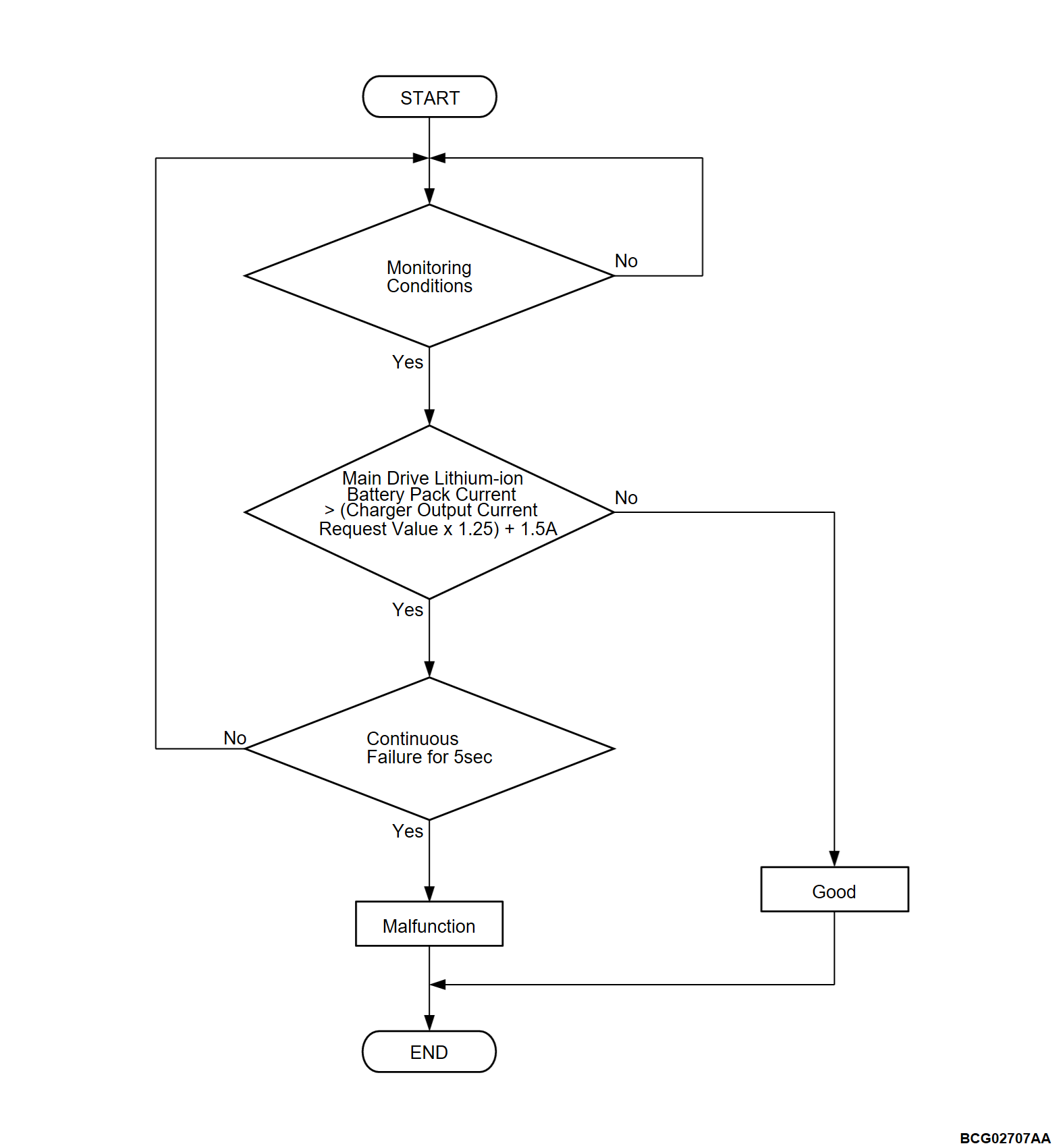DTC P0CA6: Hybrid BATT. charging current HI
| caution | Before replacing the ECU, ensure that the communication circuit is normal. |
MONITOR EXECUTION
Continuous
MONITOR EXECUTION CONDITIONS (Other monitor and Sensor)
Other Monitor (There is no temporary DTC stored in memory for the item monitored below)
- Not applicable
Sensor (The sensor below is determined to be normal)
- Not applicable
TROUBLE JUDGMENT
Check Conditions
- When the vehicle is in the charging mode
Judgment Criterion
- When a state where the current value of the main drive lithium-ion battery is larger than the value of the calculated charger output current request value continues for 5 seconds
PROBABLE CAUSES
- Malfunction of the BMU.
- Malfunction of the on board charger/DC-DC converter.
- Malfunction of the PHEV-ECU.
DIAGNOSIS
STEP 1. Using scan tool (M.U.T.-IIISE), check whether the other DTC is set.
Check whether the DTC is set in the BMU or on board charger/DC-DC converter (Refer to  <BMU>,
<BMU>,  <On board charger/DC-DC converter>).
<On board charger/DC-DC converter>).
 <BMU>,
<BMU>,  <On board charger/DC-DC converter>).
<On board charger/DC-DC converter>).Is the DTC set?
![[Previous]](../../../buttons/fprev.png)
![[Next]](../../../buttons/fnext.png)


